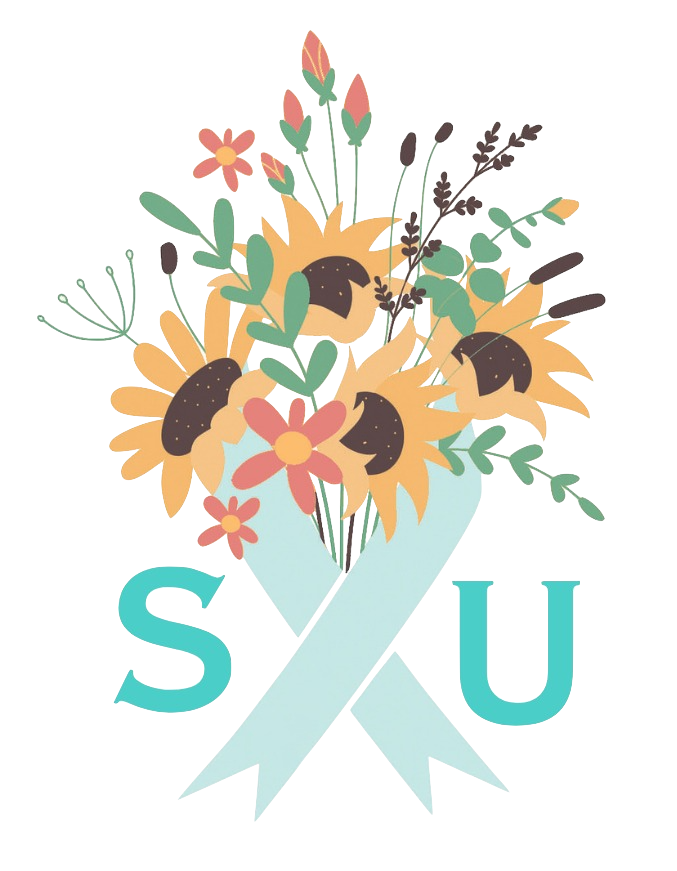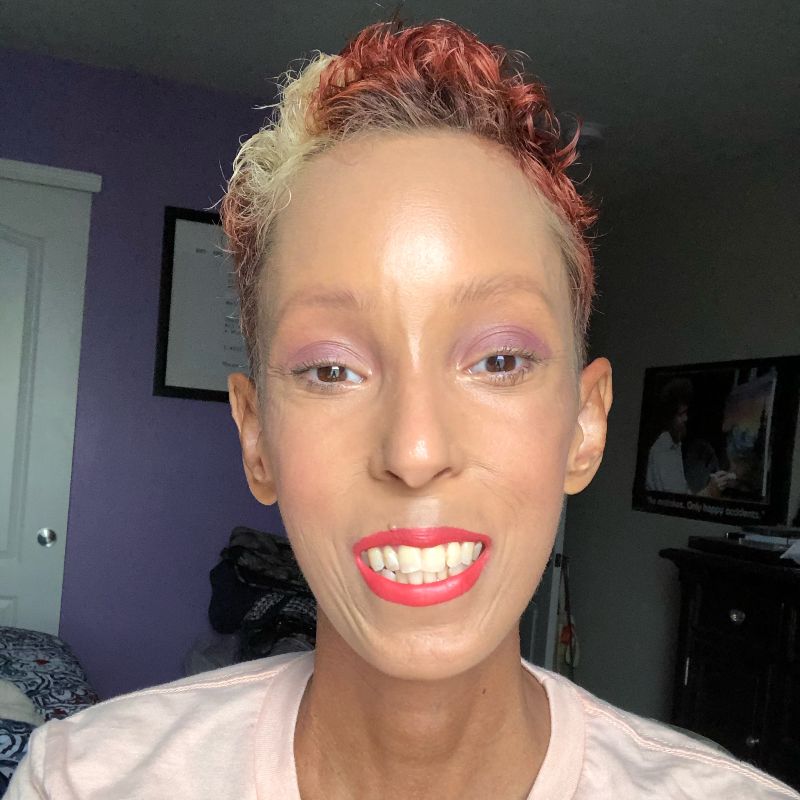Michelle Gray
Louisville, Kentucky (United States)
MICHELLE GRAY
Scleroderma Stories Issue 3
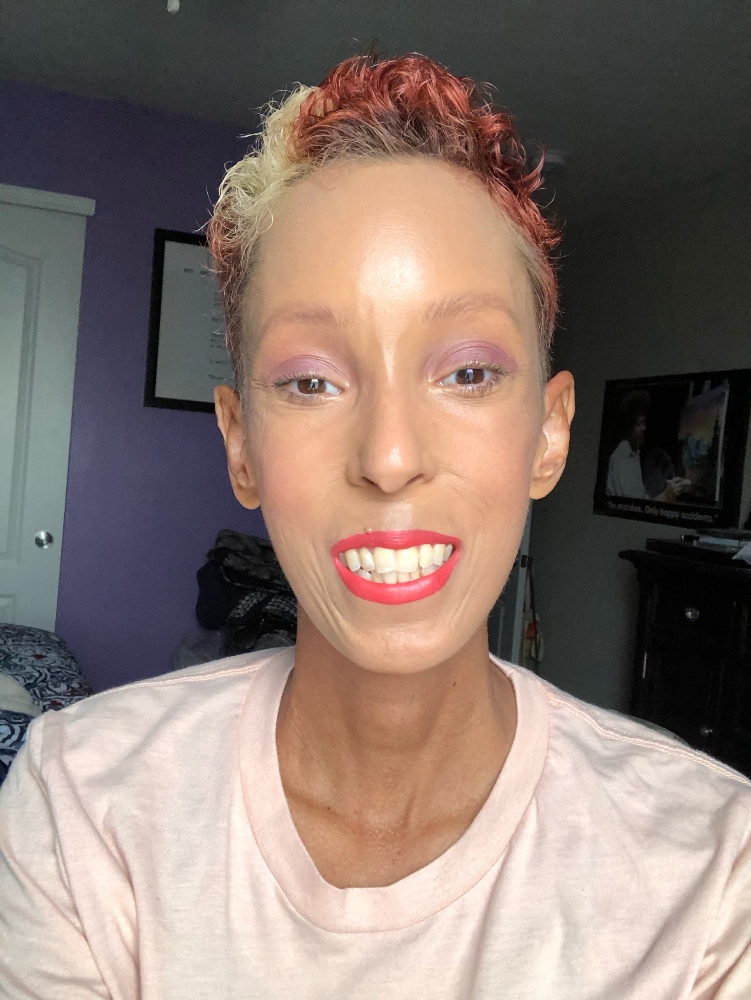
Please introduce yourself
I’m Michelle. I am 37 and a single mom of two kids. My son is fifteen, and my daughter is eight. I currently live in Louisville, Kentucky. I like reading books and musicals, the movies, and just anything art related. My favorite movie is “The Princess Bride.
Has scleroderma impacted your hobbies and interests?
Yes. My hands are pretty much the worst right now. They’re contracted, so it’s hard to hold a book in my hands, or my phone, or just really anything in general. What has helped is that I have a phone stand that I can put my phone on as well as a thing called a Pillow Pad. You can set a book or notebook on there so you don’t have to hold it in your hands. And then, you can just read that way.
When were you diagnosed?
I was diagnosed unofficially on November 11th, 2016 by an Emergency Room physician, and then I got an official diagnosis in January of 2017 when I saw a rheumatologist for the first time.
Leading up to the diagnosis, my hands would swell overnight but typically go down during the day, for the most part. My index finger on my right hand became contracted, and I couldn’t really use it. That happened over the summer of 2016. Around October of 2016, I started to get face tightening, and my mouth became smaller, so it became harder to eat.
How did you feel when you were diagnosed?
I’m not really sure. I had googled my symptoms, like everyone does, and Google was actually right, so I guess I was scared. More so scared that Google was right and that something serious was wrong, but also kind of relieved because I knew right off the bat. I didn’t have to go through as many doctors to get an official diagnosis. They knew what it was, so I could go ahead and start treatment.
My last job had actually involved patients that had scleroderma. However, I wasn’t personally working with the patients. I worked at a specialty pharmacy, and the drug program that I was on was used for patients with scleroderma.
After I was officially diagnosed in January of 2017, I googled scleroderma so I could find more information. I found the scleroderma organization.
What symptoms have you developed since your diagnosis?
My throat is inflamed, I have been told that I have a little bit of the lung scarring and interstitial lung disease. I have inflammation in, I believe, my small intestine. My stomach doesn’t move food as quickly, so there’s issues there with that. I also found out that I have arthritis in my toes.
The hardest symptom is probably the things that are going on with my gut. I’m not able to eat certain foods, or foods make me nauseous, so it can be hard to sleep. I also don’t really have an appetite sometimes because I know what could happen later if I eat.
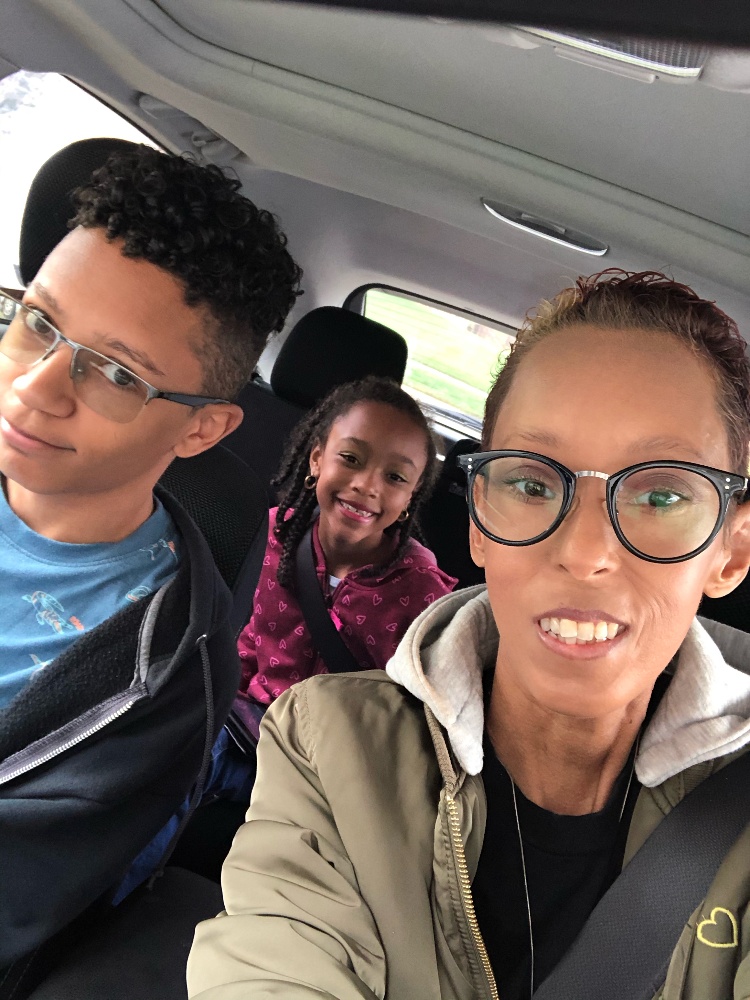
What is the scariest part of living with scleroderma?
I think for me, right now, probably the scariest part is having to resign from my job. I had to resign because it was too painful to work an 8-hour day with my hands being the way they are. That has made things difficult because you want to be able to provide for your family. But it was just too painful. You get too exhausted at the end of the day, and you can’t do things that you want to do.
Did bosses or friends understand what you were going through?
My boss was pretty understanding. I did have to go to the doctor quite a bit. I would have to take off days to go to appointments, but they were very much understanding and always offered help if I needed any of it.
After I got diagnosed, I found out that a friend that I had gone to high school with also has scleroderma. It was really interesting to know that because I found out that there was someone that I know personally who knows what it is like. She has more internal involvement than I do, but even though our symptoms are a bit different, still just knowing that somebody knows what it is like has been extremely helpful.
I also joined a Facebook group, and there was someone I had met at work. I’ve been communicating with her occasionally to check in and have a mentor of sorts.
What lifestyle or mindset changes have you made?
I have definitely had to realize that it’s okay to ask for help and that sometimes, things are different, and I’m not going to be able to do everything like I used to be able to do them. And, it doesn’t make me weaker when I ask for help. I have to know what my limitations are. Sometimes, I can only do so much in a day, and that’s it. I’ve realized that’s okay as long as I get up and keep doing the best that I can.
Have scleroderma’s effects on your physical appearance influenced your confidence or view of yourself?
Yes. Now, a lot of times when I look at the mirror, it’s hard to not look at myself and see someone who is sick and has something wrong with them, even though maybe other people can’t see it.
Sometimes it is really hard to look at pictures of myself before I was diagnosed and see the difference in my face, because I don’t look like how I once did. I don’t think people understand how hard that can be. You used to look one way but now you don’t, and you basically can’t do anything to change it. It can be hard some days… It can be really hard.
What helps you get through difficult times?
My faith, my family, and just knowing that there are people out there who care about me. Knowing that they’re willing to help me if they know what’s going on and that they understand why certain things can and can’t be done helps me. There are people just willing to listen, lend a hand, or just be there for me.
How have your kids helped you or learned about scleroderma?
My son, Jeremiah, will help me put on shoes, put on a jacket, or help me carry things. My daughter, Nova, is a bit sassier, so she kind of has a bit of an attitude when I ask her to help me, but she’s always willing to try and help me. She’ll try to help me make my coffee in the morning; she really likes doing that for me.
Any time that I need something, such as if I cannot reach something in the kitchen or if I need help opening drawers, they are always willing to help me do things that I just can’t do.
I did explain to my kids what scleroderma is. As things have progressed and new symptoms have shown up, I’ve explained as we go so that it isn’t too scary. I think their main thing was really, “What’s going to happen?” Like, am I going to be okay? I think knowing that has helped.
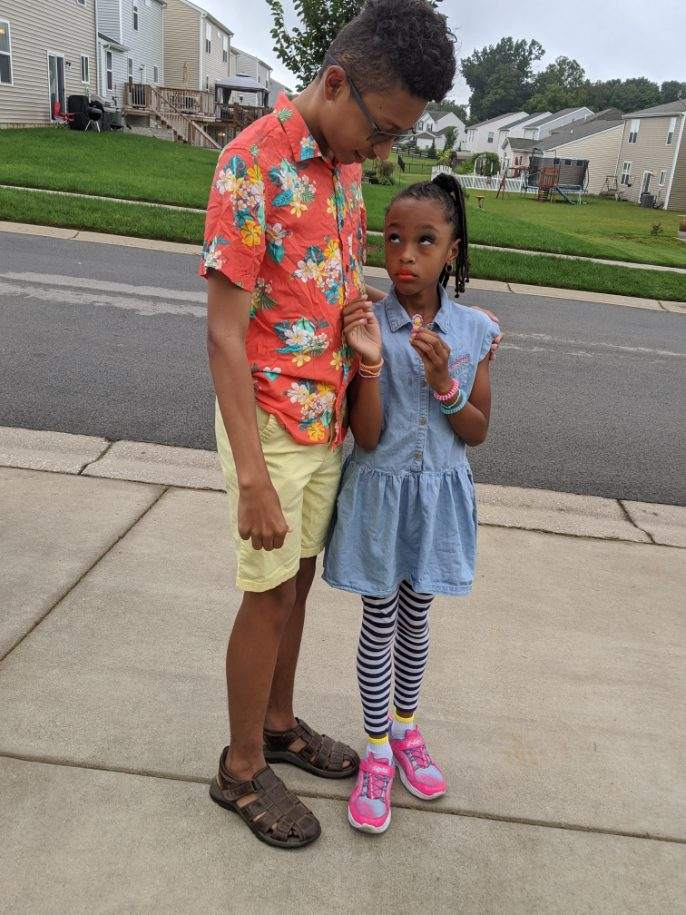
Have you had to make any adjustments because of COVID?
I ended up working from home before I had to resign. I make sure to wear my mask when I go out and limit how much interaction I have with going outside and in public places. I only go out if I have to, and I get in and get out of the store quickly. We are considered high-risk, depending on the medicines you are taking. I need to make sure that I don’t get sick because it wouldn’t be good along with scleroderma.
What treatments or medicines have you tried?
I’m taking Cell-Cept and pantoprazole. Those are the two I take on a daily basis. My least favorite is the Cell-Cept because I have trouble swallowing. I have to chew it up, and it’s pretty nasty. The pantoprazole is helpful for my stomach and helps the nausea be not so bad. I have also gone occupational therapy a few times to stretch out my hands, but that’s about it.
What advice do you have for those with scleroderma or other chronic illnesses?
I would say that to do your best, take each day as it comes. Take it one day at a time, and don’t be afraid to ask for help if you need it. Be upfront and honest if you’re tired or fatigued, and know that there are other people out there that are dealing with scleroderma or other chronic illnesses.
You’re not alone, and we can all help each other by listening to each other. There are people out there willing to listen and be there with you to get through it with you, if you need it.
Is there anything else you would like to share?
I was diagnosed later in life. I was originally diagnosed when I was 33, so I would just try to remind myself that every day is really a gift. I just remembered that, as long as I am still alive and breathing, I can potentially help someone else by just keeping on going.
Be sure to follow us on Instagram and Facebook (@sclerounited) to see more scleroderma warriors’ journeys in our weekly Sclero Sunday series.
Are you a scleroderma warrior? We’d love to interview you for Scleroderma Stories! Please visit tinyurl.com/share-my-sclero-story or email us at contact@sclerounited.us
